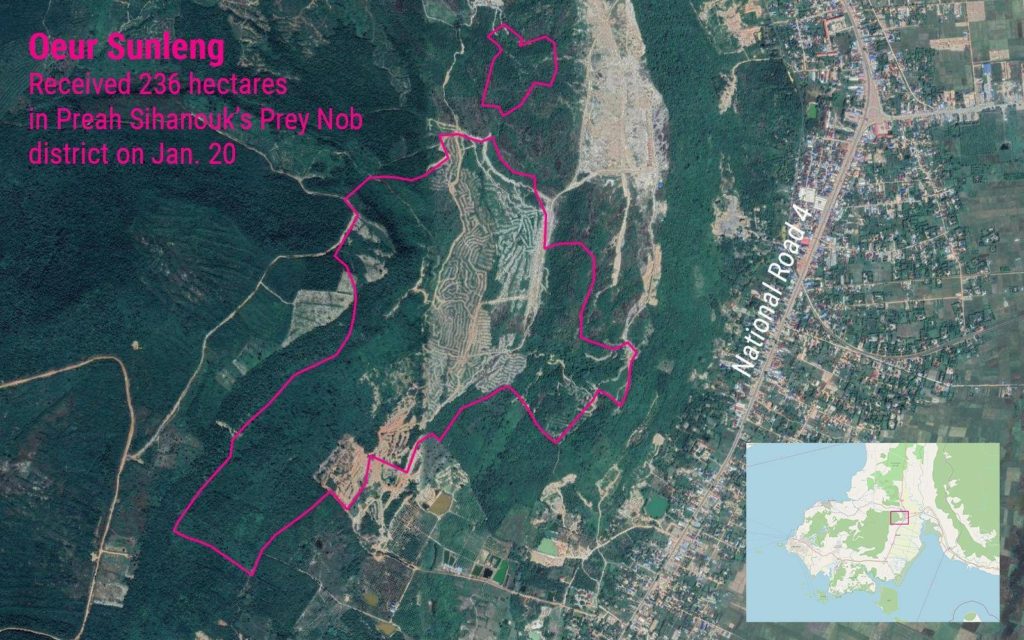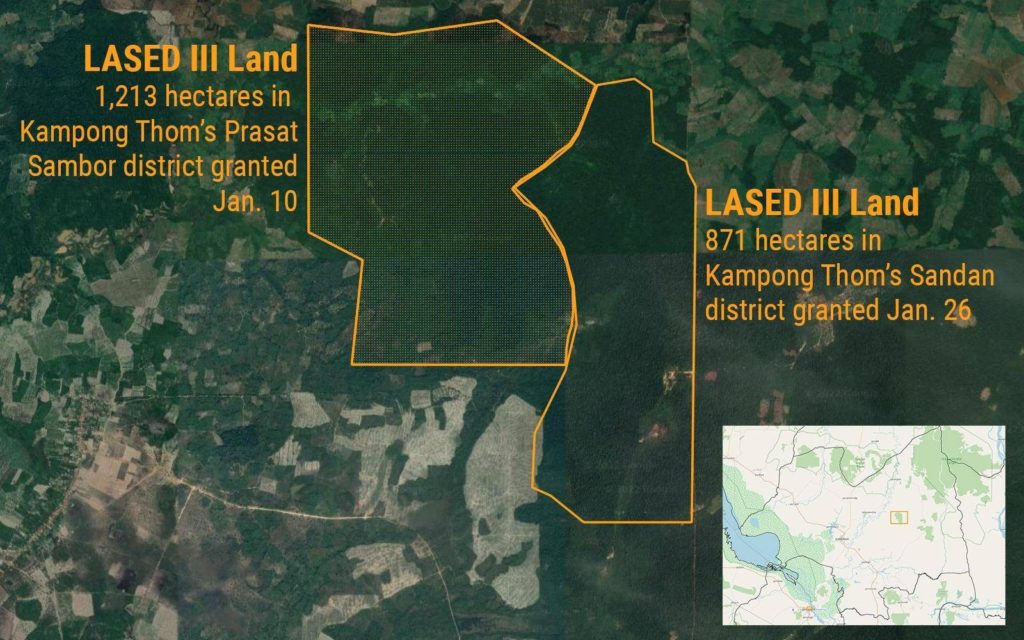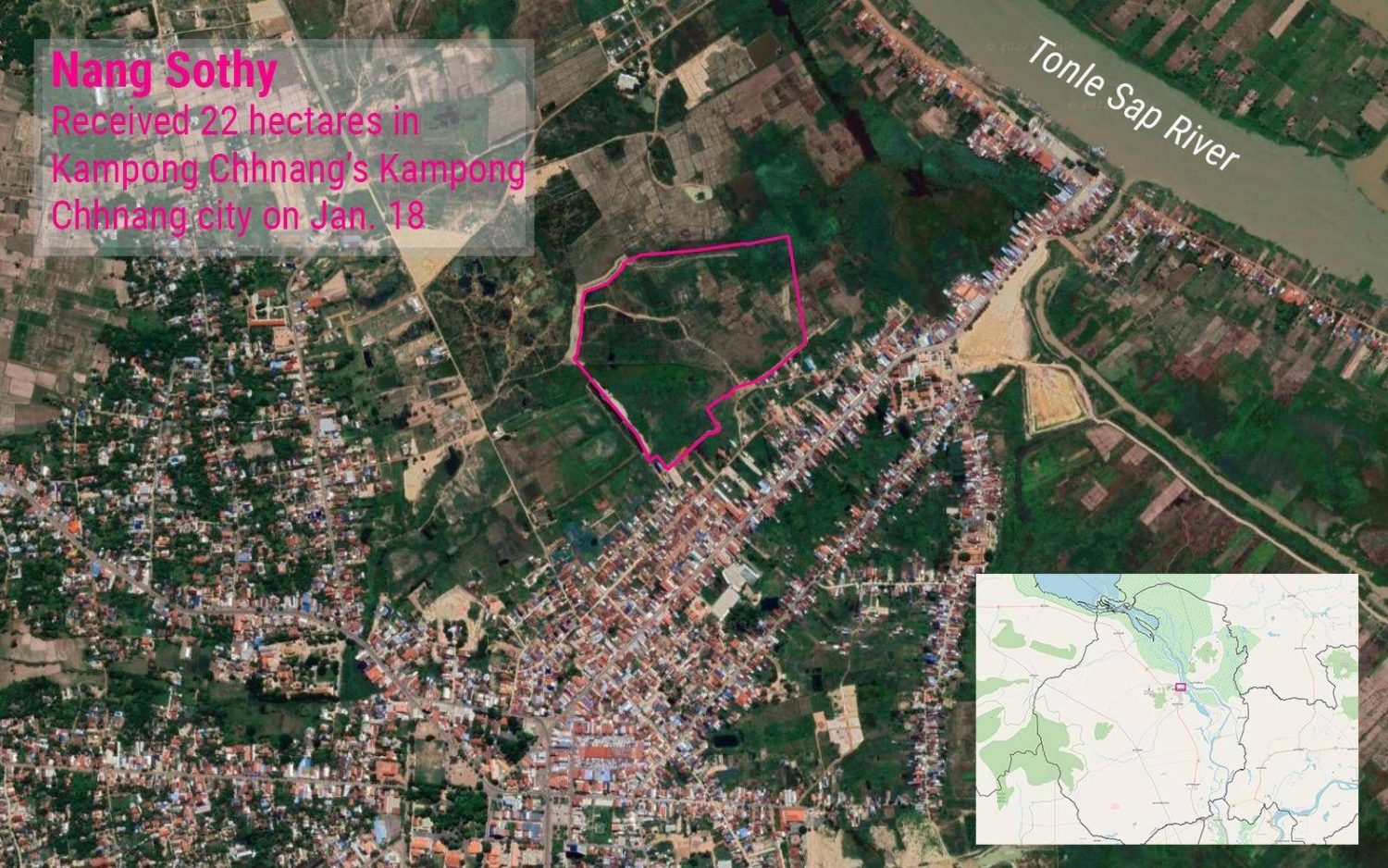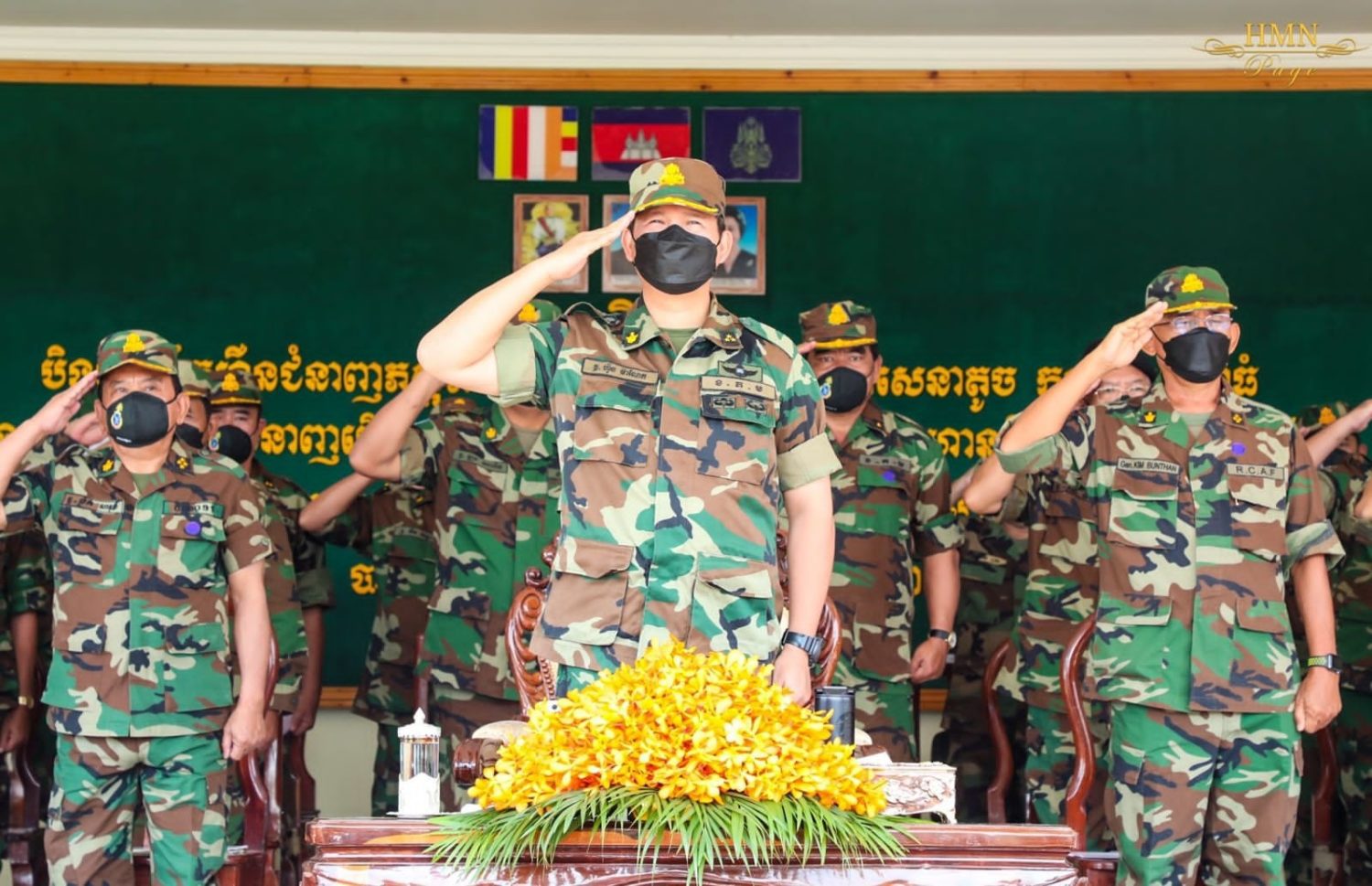The government cut nearly 1,000 hectares of land from three provinces and Phnom Penh, distributing land to an oknha, a World Bank land project and the capital’s administration.
The first land grant — released in the latest batch of sub-decrees signed five months earlier — granted 22 hectares of land in Kampong Chhnang city’s Phsar Chhnang and Khsam communes to Nang Sothy.
Sothy is an oknha and sole chair of his company, Thy Holding Group. He is also vice president of the Cambodian Federation of Employers and Business Associations, as well as a representative of employers governing the National Social Security Fund.
Reached over the phone, Sothy said he bought the land in Kampong Chhnang in 2017, saying the sub-decree was official recognition for a land title from the government. He plans to develop the land, but wouldn’t say what he would build there yet.
“This land is what we call private farmland, but the area is under protection. … The population is always cutting the trees, along the Mekong river. The government has issued a warning letter,” he said.
He added he bought the land from farmers and that the process had been done legally.

Another 236 hectares in Preah Sihanouk province’s Samrung commune, in Prey Nob district, went to Ear Sunleng.
Reporters could not immediately identify additional information about Sunleng, but Samrung commune chief Hy An confirmed he knew about the land purchase, but not much else.
“The titles he bought were from so long ago and they have names and representatives [of parties to the sale],” he said. “I do not know it all since the land is so huge with 236 hectares. It was located in four villages. It is also on a mountain.”
He said he didn’t know what the plans for this land were, and he had never even met the buyer. “I have never known him and whether he is an oknha or not because I have never seen his face.”
An said the transaction was done at a higher level than his role, so he did not authorize the sale and wasn’t familiar with the details nor the next step of the process.
“I have no right to sign and only know after they sell them,” and transfer land titles, he said. “I do not know what kind of power [I have] in the decentralization and how they transfer the power to the local officials since the local officials cannot register to sign for the state land.”
A third sub-decree, signed January 26, granted 56 hectares in Phnom Penh’s Chbar Ampov district to the Phnom Penh municipality. Unlike other land grants, this one did not include geocoordinates specifying its exact location.
Governor Khuong Sreng told VOD that there were no plans to announce yet. “When I develop it, you will know. When I do it, I will let you know,” he said.

The last sub-decree in the batch broke off 871 hectares in Kampong Thom’s Sandan district as a social land concession, as part of the World Bank Group’s land redistribution project, Lased III.
Lased III, or the Land Allocation for Social and Economic Development, is a $107 million project, mostly provided by the World Bank with $14 million in funding from the government, is meant to establish social land concessions, facilitate indigenous land titling, and commune land use planning between its signing last year and 2026.
Earlier this month, another sub-decree revealed the government had cut 1,213 hectares directly next to this current land grant in Prasat Sambor district, also for a new social land concession.
Former Kampong Thom governor Sok Lou told VOD that there were previous land grants under different phases of the Lased project, and the World Bank was working with the Land Ministry to give land.
This new grant wasn’t because people had requested the land, but people who lack land can apply through a 10-step process to get land through this project, he said.
“The most important thing is the Land Management [department] and district and commune authorities check to see that people do not really have land. There are 10 steps of the conditions like I have mentioned. … It helps people’s living conditions, for those who do not have land, and it is very good and helps their livelihoods since they will have land to live and land to cultivate.”
Earlier phases of the Lased project have been controversial, including rights groups alleging forced evictions from the social land concessions, and the land being used to resettle people who were involved in disputes elsewhere only to find the soil poor for farming.
Correction: An earlier version of this article misstated that Sok Lou was the current governor of Kampong Thom. He was moved to be Battambang provincial governor in August 2021.













